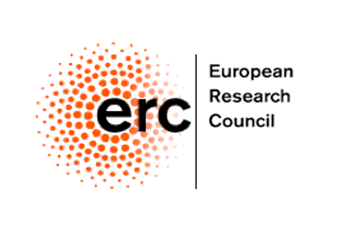eXtended Reality & Artificial Intelligence Lab
We are a research group at the University of Basilicata specialising in Computer Graphics and Artificial Intelligence. Our mission is to foster the exploration of these technologies for immersive XR experiences, human-centric interfaces, realistic simulations, and innovative content generation using artificial intelligence.
In the field of Computer Graphics, we work on the cutting edge, pushing the envelope of what is possible in creating lifelike and immersive virtual environments. Our work in this area spans the entire gamut from realistic rendering, animation, and visual effects to developing novel algorithms that can efficiently generate and manage complex 3D environments.
The field of Artificial Intelligence (AI) is another pillar of our research. We focus on various AI techniques, from machine learning and deep learning to natural language processing. Our expertise in these areas underpins our innovative work in content generation and simulations. We design intelligent algorithms capable of autonomously generating content or running simulations that are accurate and can adapt to the changing requirements of the real world.
One of our key application areas is Extended Reality (XR), which includes Virtual Reality (VR), Augmented Reality (AR), and Mixed Reality (MR). We design and build sophisticated XR systems that provide engaging and immersive experiences. These systems leverage our computer graphics and AI work, resulting in highly interactive, realistic, and responsive virtual worlds.
We also specialize in Human-Computer Interaction (HCI), applying our understanding of AI and computer graphics to develop intuitive and efficient interfaces between humans and machines. These interfaces strongly emphasise user experience, employing eye-tracking, gesture recognition, and haptic feedback to create seamless and natural interfaces.
In conclusion, our research group operates at the intersection of technology and creativity, combining scientific rigour with an inventive spirit. By drawing on our strengths in computer graphics, artificial intelligence, extended reality, and human-computer interaction, we aim to transform how people interact with and perceive the digital world (see Research).
We are looking for passionate new PhD students, Postdocs, and Master students to join the team (more info) !
We are grateful for funding from Leiden University, NWO (Vidi talent scheme and the Frontiers in Nanoscience program), and from an ERC starting grant.



News
22. July 2023
XR&AI International Summer School 2023 is over. See the highlights in this video.
17. July 2023
XR&AI International Summer School 2023 begins! Visit its website.
22. June 2023
Our Majorana-Noise paper is out! And Michelle wrote a nice item about it.
22. June 2023
Jiasen’s paper on noise in mesoscopic junctions is on arXiv.
6. March 2023
How does superconductivity break down with high doping? Our new paper in Nature Materials shines some light on the issue.
18. December 2022
Willem defends his PhD. Contratulations!
23. May 2022
Two new papers on arXiv! One on persistent gaps and non-mean-field breakdown of SC, and one on shot-noise of individual (putative) Majorana modes.
17. March 2022
Milan wins an ERC CoG grant! See Leiden news. 
29. October 2021
Our new paper, on Cooper pairs above Tc, is published in Science. See SRON news, TU Delft news, Leiden news, Physics World.



